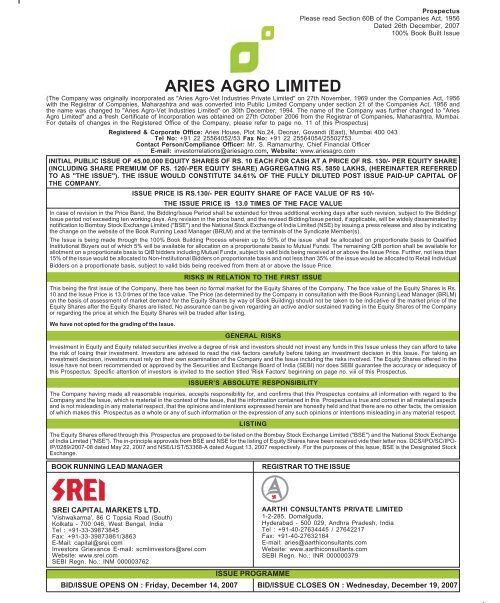Table of ContentsWhat Is The Value Of A Bond Quizlet Finance for BeginnersWhat Does The Frnce Bond Market Finance Things To Know Before You Get ThisThe smart Trick of Finance Quizlet When Bond Rates Rise That Nobody is Talking AboutSome Known Incorrect Statements About Which Of These Describes A Bond Personal Finance
Organisations aren't the only entities that can release bonds. Federal governments and municipalities offer them also. Let's look at how these kinds of bonds differ. Advertisement Federal Government Bonds: To money programs, satisfy their payrolls and basically pay their costs, governments issue bonds. Bonds from steady federal governments, such as the United States, are thought about exceptionally safe investments.
The U.S. government issues its own bonds from the treasury and from a number of federal government agencies. Those maturing in less than one year are referred to as T-bills. Bonds that mature in one to ten years are T-notes, and those that take more than ten years to mature are treasury bonds. In many cases, you do not need to pay state or local earnings taxes on the interest they make.
Munis financing things like medical facilities, schools, power plants, streets, office buildings, airports, bridges and so on. Municipalities typically provide bonds when they require more money than they collect through taxes. The advantage about community bonds is that you do not need to pay federal income taxes on the interest they make.
While corporate bonds are a higher threat than government bonds, they can make a lot more money. There's also a much larger selection of business bonds. The downside is that you do have to pay federal earnings tax on the interest they make. Especially when buying business bonds, it is very important to think about how dangerous the bond is.
You can look into the company's monetary situation to see how solid its prospects are. This includes investigating things like cash circulation, financial obligation, liquidity and the business's organisation plan. As fun as it sounds to research these things, many of us don't have the time or abilities to examine a corporation's monetary scenario precisely.
Their professionals investigate a business's circumstance and figure out a bond score for the company. Every score service has its own formula for determining danger and its own sort of ranking scale. Usually, score scales are spelled out in letter grades, where an AAA rating designates a safe, low-risk bond, and a D ranking designates a high-risk bond.
federal government bonds, are usually low-yield bonds. You can depend upon getting a payment however that payment will be little. a city could issue which type of bond? quizlet. On the other side of the spectrum, you have what's not-so-affectionately called, which are low-rated, high-risk bonds. In order to entice financiers into buying these dangerous junk bonds, the issuing business assure high yields.
3 Easy Facts About Finance Quizlet When Bond Rates Rise Described

However if you do, you might earn money in spades. Still uncertain about some of the terms related to bond investment? Check out the glossary on the next page.
Bonds are loans made to big companies. These consist of corporations, cities, and national federal governments. A specific bond is a piece of a massive loan. That's due to the fact that the size of these entities needs them to borrow money from more than one source. Bonds are a type of fixed-income financial investment. The other kinds of financial investments are cash, stocks, commodities, and derivatives.
They vary according to who issues them, length until maturity, rates of interest, and risk. The safest are short-term U.S. what does bond mean in finance. Treasury expenses, however they also pay the least interest. Longer-term treasurys, like the standard 10-year note, provide somewhat less risk and partially greater yields. POINTERS are Treasury bonds that protect versus inflation.
They return a little more than Treasuries but are a bit riskier. Corporate bonds are provided by companies. They have more threat than federal government bonds because corporations can't raise taxes to pay for the bonds. The threat and return depend on how credit-worthy the company is. The highest paying and highest danger ones are called scrap bonds.
Until then, the borrower makes agreed-upon interest payments to the bondholder. Individuals who own bonds are likewise called financial institutions or debtholders. In the old days, when individuals kept paper bonds, they would redeem the interest payments by clipping vouchers. Today, this is all done electronically. Obviously, the debtor repays the principal, called the face value, when the bond grows.
They can only do this due to the fact that there is a secondary market for bonds. Bonds are either publicly traded on exchanges or offered privately in between a broker and the financial institution. Given that they can be resold, the worth of a bond rises and falls till it grows. Think Of The Coca-Cola Business wished to borrow $10 billion from investors to acquire a large tea business in Asia.
It provides each bond at a par value of $1,000 and promises to pay pro-rata interest semi-annually. Through an investment bank, it approaches financiers who invest in the bonds. In this case, Coke requires to offer 10 million bonds at $1,000 each to raise its desired $10 billion before paying the fees it would sustain. Each $1,000 bond is going to get $25.00 annually in interest.
The smart Trick of How Is A Bond Represented In The Yahoo Finance That Nobody is Discussing
If all works out, at the end of ten years, the original $1,000 will be returned on the maturity date and the bond will disappear. Bonds settle in two methods. Initially, you receive income through the interest payments. Of course, if you hold the bond to maturity, you will get all your principal back.
You can't lose your financial investment unless the entity defaults. Second, you can benefit if you resell the bond at a higher price than you bought it. In some cases bond traders will bid up the price of the bond beyond its stated value. That would occur if the net present worth of its interest payments and principal were greater than alternative bond financial investments.
Lots of individual investors choose to let a skilled fund manager select the best choice of bonds. A bond fund can also minimize threat through diversity. In this manner, if one entity defaults on its bonds, then only a small part of the investment is lost. Some bonds, known as zero-coupon bonds, do not distribute interest income in the kind of checks or direct deposit however, instead, are issued at a specifically calculated discount rate.
Over the long run, bonds pay a lower return on your financial investment than stocks. Because case, you may not earn enough to exceed inflation. Investing just in bonds might not enable you to save enough for retirement. Business can default on bonds. That's why you need to examine the bondholder's S&P scores.
They might rapidly default. They must offer a much higher rate of interest to bring in buyers. Although usually thought about "safe," bonds do have some risk. Credit risk refers to the likelihood of not getting your assured principal or interest at the contractually ensured time due to the company's inability or aversion to disperse it to you.
The absolute highest investment-grade bond is a Triple-A ranked bond. There is always a possibility that the government will enact policies, deliberately or unintentionally, that lead to widespread inflation. Unless you own a variable rate bond or the bond itself has some sort of built-in defense, a high rate of inflation can damage your buying power.
When you purchase a bond, you know that it's probably going to be sending you interest income regularly. There is a risk in this, however, because you can not forecast ahead of time the exact rate at which you will have the ability to reinvest the cash. If rates of interest have dropped substantially, you'll need to put your fresh interest income to operate in bonds yielding lower returns than you had been delighting in.
Our Why Does Spectre Finance Terrorism In James Bond PDFs

This means that when you acquire them, you may have a difficult time offering bonds at top dollar. This is among the factors it is often best to restrict the purchase of individual bonds for your portfolio to bonds you plan to hold until maturity. For many individuals, valuing bonds can be confusing.
To put it simply, the more need there is for bonds, the lower the yield. That appears counter-intuitive. The reason lies in the secondary market. As people demand bonds, they pay a greater price for them. But the interest payment to the bondholder is fixed; it was set when the bond was initially sold.
Put another way, the price they paid for the bond yields a lower return. Investors generally demand bonds when the stock market becomes riskier. They are willing to pay more to avoid the higher threat of a plunging stock exchange. Since bonds return a set interest payment, they look appealing when the economy and stock exchange decrease.